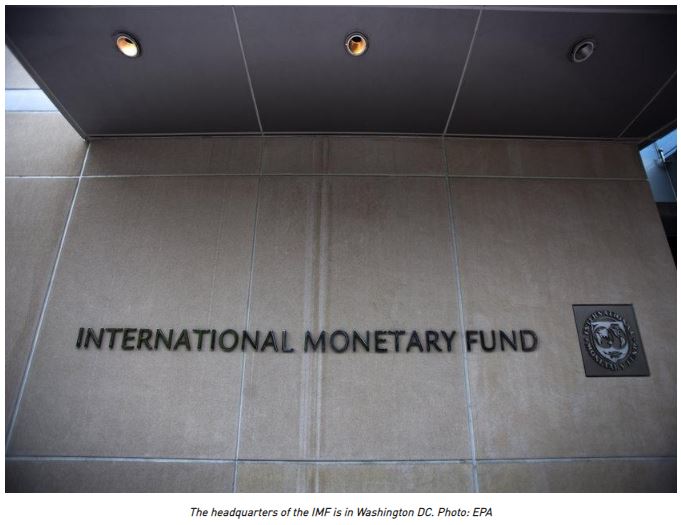IMF sees stable growth but risks lie ahead for Myanmar
Myanmar’s economy is growing steadily but held back by uncertainty ahead of next year’s general elections and weaker private demand, according to the International Monetary Fund.
IMF economists carrying out annual Article IV consultations in Myanmar reiterated warnings made last April that “risks are tilted to the downside” and cited concerns over fallout from the Rakhine crisis and weaknesses in the banking sector.
“On the domestic front, growth could underperform if fiscal spending does not accelerate sufficiently. Delayed restructuring and recapitalisation of the banking system could increase systemic risks with large macro financial spillovers. A deterioration of the security situation and continued humanitarian issues in Rakhine could weigh on sentiment,” the IMF said in a statement following last week’s visit. Rising trade tensions and global market volatility, higher crude oil prices and spillovers from a slowdown in China remain risks from abroad.
The IMF estimates growth of 6.5pc in 2018-19, up slightly from 6.4pc in 2017-18 on account of continued good export performance, particularly of garments and gas, despite global headwinds.
Foreign direct investment inflows and project approvals, it warns, remain lower than in recent years because large projects have been completed and foreign investors remain cautious ahead of the 2020 elections.
“For 2019-20, growth is expected to be broadly stable with higher government spending largely offset by pre-election uncertainty and weaker private demand,” the Fund said. Myanmar is scheduled to hold parliamentary elections in late 2020.
The Fund expects inflation to fall to 6-7pc in the medium term as the one-off impact from higher electricity tariff ends and pressures from rising food prices abate. It said domestic demand was mostly weaker reflecting slowing credit growth, a correction in real estate prices and declining investment.
The fiscal deficit widened slightly to 3.5pc of GDP in 2018-19 from 3.0pc in 2017-18, and central bank financing of the deficit was higher than the preceding year.
The IMF urged that bank restructuring should follow the new prudential regulations and said that a comprehensive financial sector reform strategy would minimise the eventual clean-up costs and risks of negative spillovers to the rest of the economy.
It welcomed Myanmar’s increase in electricity tariffs, the liberalisation of the financial sector for foreign insurance companies and banks, and the move to greater exchange rate flexibility. The finance ministry last month awarded licences to five foreign life insurers and six foreign-local joint ventures to operate in the local market.
Fiscal policy should seek to raise tax revenues, which remain very low by international standards, and boost Sustainable Development Goals-related spending, the IMF argues. In addition, Myanmar should implement a public-private partnership, or PPP, framework to improve project selection and ensure value-for-money through competitive bidding, building on the 2018 project bank regulation.
A new bidding round for petroleum production sharing contracts should rely on a revised model contract to help maximise revenues and ensure transparency, the Fund said.
Source: https://www.mmtimes.com/news/imf-sees-stable-growth-risks-lie-ahead-myanmar.html


 English
English




